Migrant crisis: Can deeds match the EU’s words?
- Published
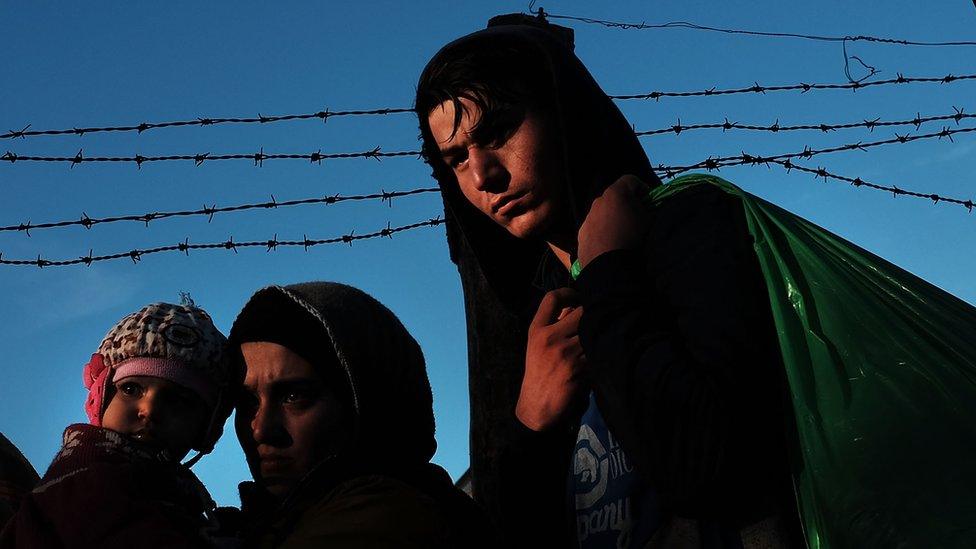
Last month a surge in the number of migrants on the Greek islands was reported, with many thousands a day arriving
More intense EU diplomacy with Turkey lies ahead to turn ambitions into facts on the ground in the migrant crisis.
An action plan has been agreed, but Thursday's EU summit ended with leaders recognising that more solidarity was needed - as much within the 28-nation bloc as in its relations with Turkey.
German Chancellor Angela Merkel aims to build on the progress made in EU Commission negotiations with Turkey by visiting Ankara on Sunday, but she admitted that "there is still a huge amount to do".
Turkey is the main transit country for Syrian refugees and other migrants - many of them also fleeing conflict zones - hoping to start a new life in Europe.
It is driving a hard bargain with the EU because of the cost of sheltering more than two million Syrian refugees on its soil, and because the crisis has put it in a strong negotiating position.
Record numbers of migrants continue to risk their lives on crowded boats crossing from Turkey to the Greek islands and from chaotic Libya to Italy.
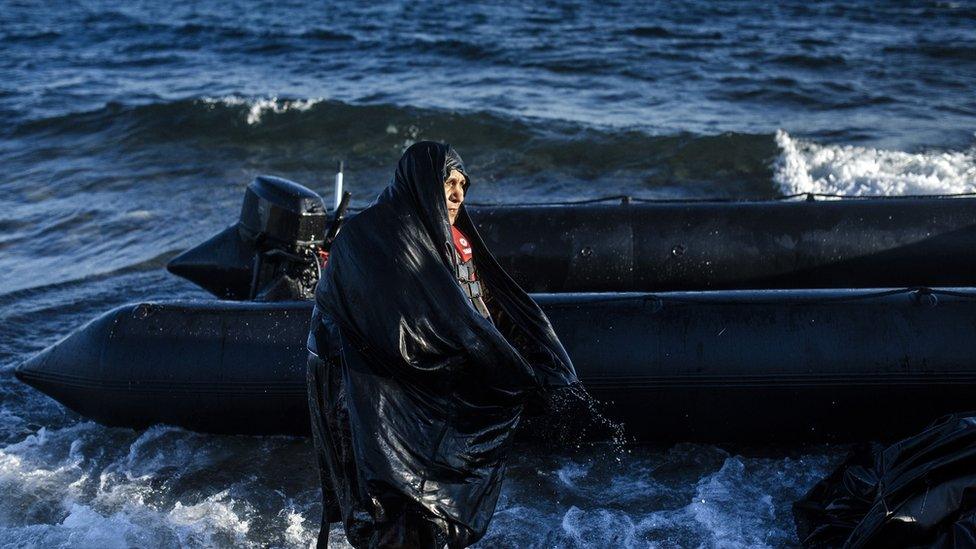
Migrants and refugees have been continuing to make the perilous journey from Turkey to Greek islands such as Lesbos
Controversial scheme
The relocation of refugees to other EU countries has started, but so far the numbers are small, and the scheme is hotly debated.
Eritreans are going from Italy to Sweden, and soon Syrians are to leave Greece for Luxembourg.
But the idea of having a permanent mechanism to relocate refugees inside the EU caused friction at the summit, so it was left out of the summit conclusions.
Mrs Merkel told a news conference that "for some reason some East European countries feel treated badly, and I need to understand why they react so strongly and are so tough on migrants".
Last month Hungary, the Czech Republic, Slovakia and Romania opposed the relocation plan, but were outvoted.
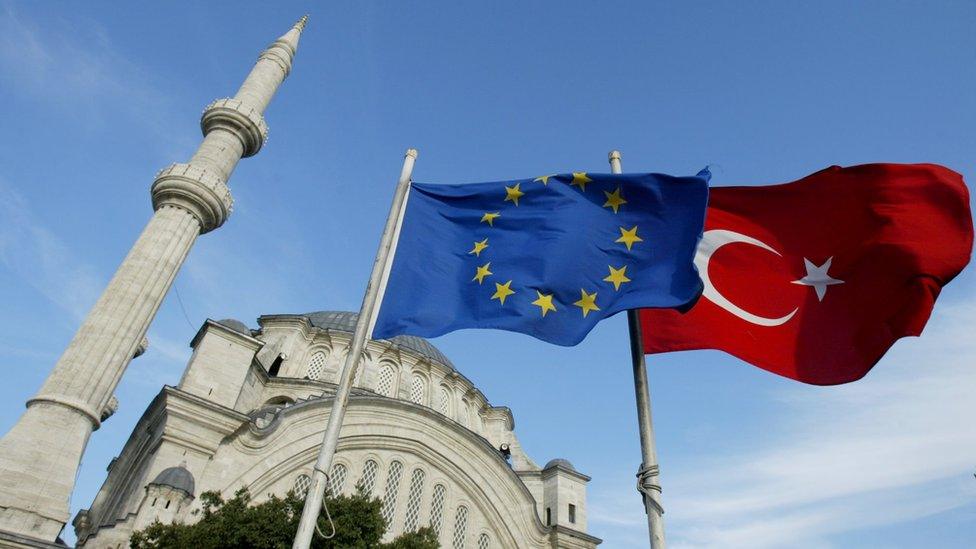
Turkey's EU membership bid has been stalled for years, and some polls have indicated falling public support among Turks for joining
Tricky timing
The focus on Turkey is now bound up with its candidacy for EU membership and its desire for visa-free travel for its citizens in the EU's Schengen passport-free zone.
The summit conclusions, external say Turkey's EU accession process "needs to be re-energised".
That could mean the EU soon opening new policy areas - called "chapters" - in the accession talks, which have been stalled because of Turkey's long-standing dispute with Cyprus.
Yet growing violence in Turkey and a general election on 1 November make this a difficult time to be conducting such sensitive talks.
Twin suicide bombings in Ankara last Saturday killed nearly 100 people rallying for peace - the worst such atrocity in modern Turkish history. It came amid escalating clashes between Turkish forces and PKK Kurdish rebels.
That instability, the ruling AK Party's crackdown on opponents, and wider concerns about human rights make it controversial for the EU to be offering inducements in exchange for action to keep migrants in Turkey.
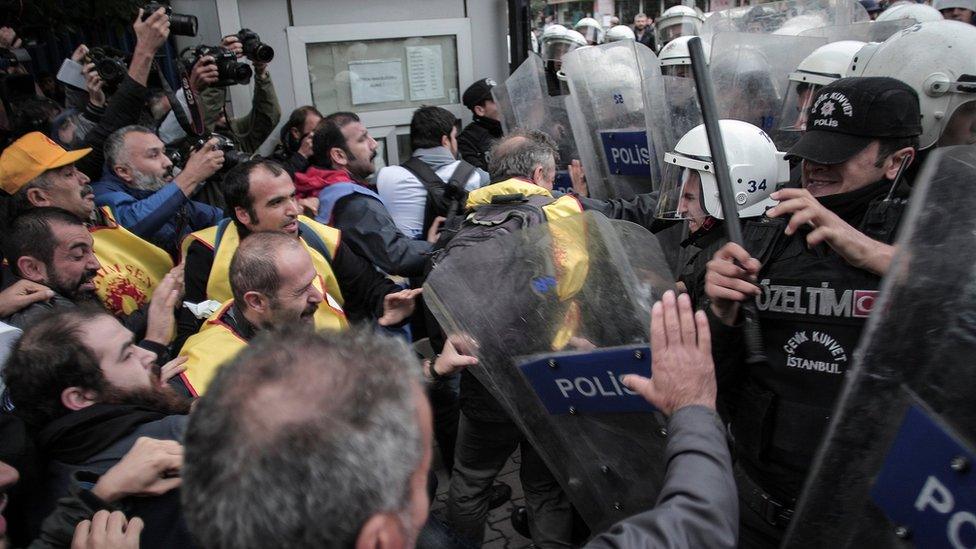
Turkey's increasingly volatile internal politics may complicate attempts at closer ties with the EU
A deal on migrant readmission between the EU and Turkey was reached in December 2013, which on paper allows the EU to send failed asylum seekers back. But Turkey has not ratified the deal and the message of this summit is that such agreements must now be put into practice.
Turkey says that for it to take back migrants from Greece and other EU countries - an extra burden besides the many refugees it is housing - the EU must bring forward visa liberalisation. Ankara would like visa-free travel to start in mid-2016, rather than 2017.
Turkey is a candidate for EU membership, yet only Bulgaria and Luxembourg recognise Turkey as a "safe country of origin", external when handling asylum cases.
Last year 23% of asylum claims by Turkish nationals in the EU were treated as well-founded.
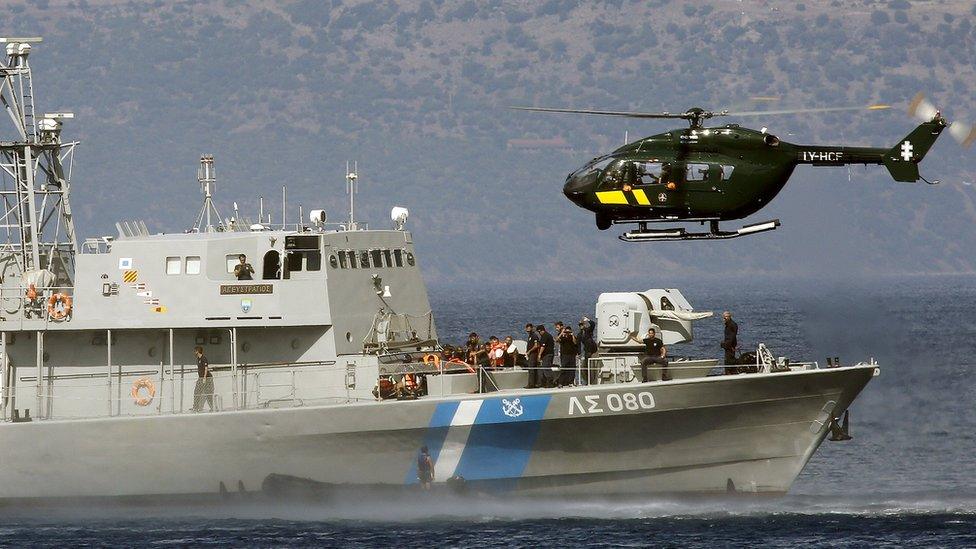
States on the frontline of the migrant crisis such as Greece and Italy have long been calling for the rest of Europe to do more to help
Show me the money
If an EU state considers a country safe then it can legally send migrants back there, so now there is a drive to establish a common EU list of safe countries, to speed up migrant returns.
But the EU border force Frontex is still far short of the resources it needs - especially as the plan now is for Frontex to start initiating migrant returns itself.
So the conclusions stressed the need to fulfil the EU's funding pledges for Frontex, Turkey and UN agencies struggling with the surge in migrant numbers.
Ms Merkel said a figure of €3bn (£2.2bn; $3.4bn) in EU aid for Turkey was discussed "because Turkey has spent €7bn on refugees, but received only €1bn".
The bottom line is that much more money needs to be spent on tackling a crisis that European Parliament President Martin Schulz called "an epochal challenge, with migration flows unseen since the Second World War".